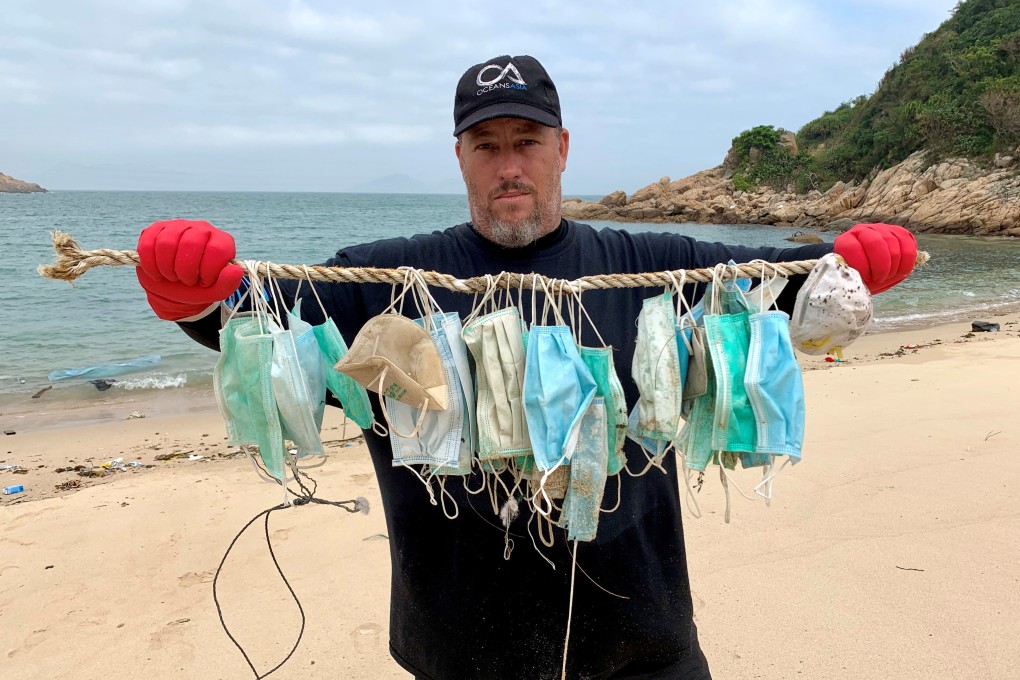Editorial | Pandemic produces an environmental cost
- Measures to battle the coronavirus have led to a surge in the dumping of single-use cutlery and food containers as well as used face masks
- People can do their bit to reduce this by making eco-friendly choices such as reusable masks and bringing reusable containers when buying takeaway food

The coronavirus pandemic has been associated with falls in global-warming emissions and other pollution. That is to be expected in places with large industrial bases where aggressive measures to combat contagion have caused major disruption of normal economic activity.
One cleaning worker at a block of public flats in Won Tai Sin told the Post she is now filling 10 bins of 660-litre capacity daily, compared with three or four bins previously. In April, concern group Greeners Action estimated Hongkongers were dumping 101 million pieces of single-use cutlery and food containers every week, more than double the estimated 46 million per week last year. That is not to mention the estimated 10 to 15 tonnes of used face masks dumped in landfills each day, and an unknown quantity of hand-sanitiser bottles.
To be sure, the Environmental Protection Department (EPD) says the overall volume of waste fell by about 6 per cent between January and May compared with the same period last year, thanks to sharply reduced economic activity.
However, the new ban on dining in at restaurants after 6pm, and the prospect it could become a full-day ban, mean residents will be eating at home a lot more. This has prompted concerns in a city where waste management systems are already under strain, with the EPD estimating landfill sites will reach capacity this year. Slow progress on territory-wide plastic waste collection and a downturn in the recycling industry do not help.
